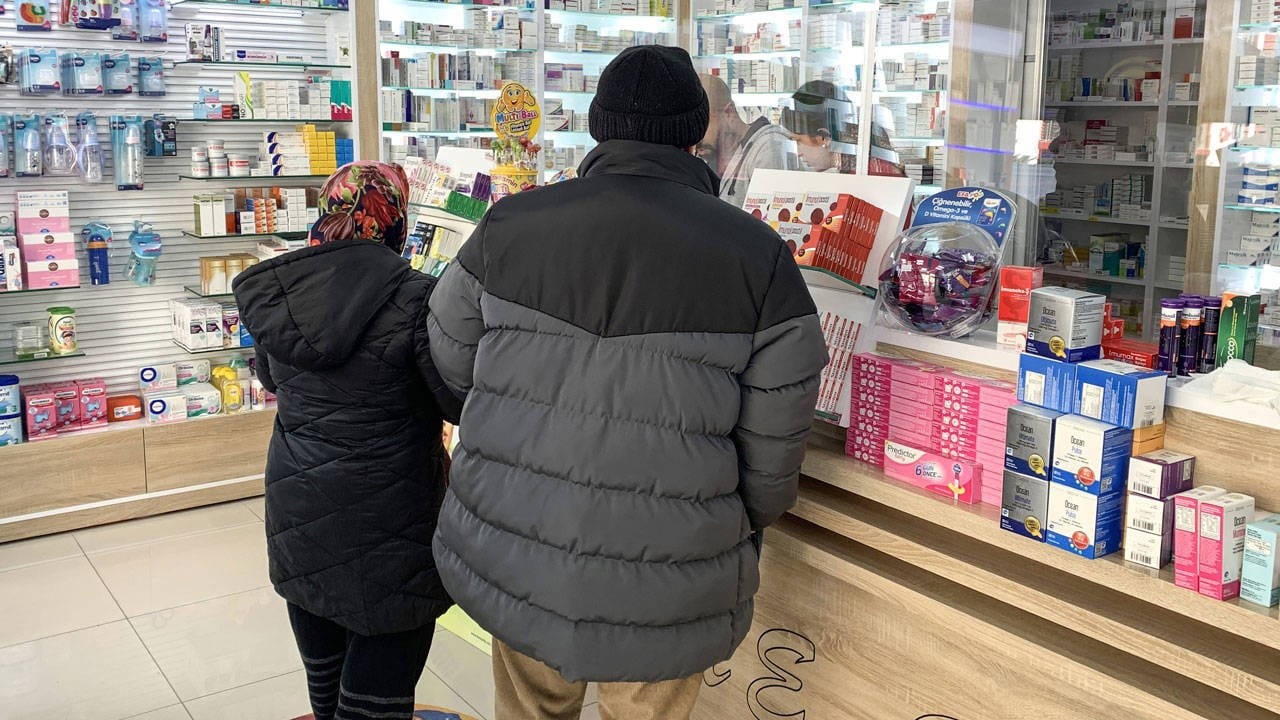There is neither cancer drug nor painkiller on the market

The daily rise in exchange rates, coupled with the euro used in drug pricing remaining far below the actual exchange rate and the lack of anticipated price increases, has exacerbated the pharmaceutical problem. It's been reported that companies are anticipating price increases, withholding supplies to pharmacies for essential medications such as simple painkillers and those for high blood pressure, diabetes, depression, Parkinson's disease, and cancer, leaving patients unable to access their medications. Pharmacists warned, "If a solution isn't found urgently, the patient will suffer."
URGENT SOLUTION IS REQUIREDŞeker Pınar Özcan, President of the Istanbul Chamber of Pharmacists, noted that the exchange rate used in drug prices lags far behind the actual exchange rate, saying, "The last time the drug exchange rate was raised was in October of last year, around 25 percent. There hasn't been any updates since then. When news of a potential increase in drug prices started circulating, the price of drugs plummeted." Özcan, noting that 15-16 percent of drugs were unavailable on the market, continued:
Many chronic medications are unavailable on the market. Cancer, diabetes, blood pressure, and in vitro fertilization medications are also unavailable. There's even a flu vaccine. If you don't get this vaccine before the illness begins, it's pointless. Manufacturers are either limiting or not providing medication at all. They won't release medication to the market without receiving the price increase and the update. This situation is reflected in the warehouse, and through the warehouse, in our hands. There's talk of a 24% price increase, which is still far below the current exchange rate. Even with the update, the problems will persist. Things are not working for the companies, the warehouses, or the pharmacists. Some international pharmaceutical companies withdrew from Türkiye during this period, and this will continue if these drug policies continue. Unless this pricing system is changed, the problem will worsen. Updates used in drug pricing should be made in line with economic conditions, not once a year, but on a periodic basis.
The crisis has deepenedPharmacist Nurten Saydan, President of the All Pharmacists Employers' Union (TEİS), stated that the deepening pharmaceutical crisis is due to exchange rate fluctuations. Saydan said, "It's been over a year since the euro exchange rate used in drug pricing was updated, and as the exchange rate gap widened, companies' willingness to supply medications decreased. As a result, the problem of drug shortages has grown exponentially compared to a year ago, leaving our pharmacies with empty shelves and unfilled prescriptions."
Saydan briefly commented on the unavailability of medicines: "The primary cause of the medicine shortage problem is the exchange rate policy in Türkiye's pharmaceutical pricing system. Currently, the fixed Euro exchange rate implemented according to the Decree on Medicine Prices remains only half the actual exchange rate. While the Euro exchange rate for medicines is 21.67 TL, the actual market rate is approaching 49 TL. Because of this significant difference, companies importing pharmaceuticals/raw materials from abroad are deliberately not releasing many medicines to the market or are supplying them in very limited quantities. In the short term, the fixed exchange rate used in pharmaceutical pricing should be immediately brought down to a realistic level. Therefore, a short-term exchange rate revision is essential, without waiting for February 2026. For a long-term, permanent solution, the necessary measures must be more comprehensive and appropriate to current conditions."
BirGün







